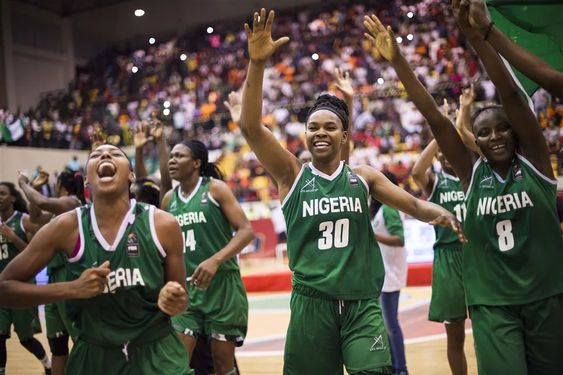Sports
Highlighting how sports and institutional support may help girls grow

Recent incidents involving Nigerian teams in international sports have supported the idea that girls may succeed in all undertakings if given the right opportunities.
This idea is supported by the Super Falcons’ outstanding showings at the 2023 FIFA Women’s World Cup in Australia and New Zealand and the 2023 FIBA Women’s AfroBasket Championship in Rwanda.
Most Nigerians, especially the youth, were warmed by the female teams’ performances on African soil and on the international stage, turning their tiredness into delight.
While those occurrences persisted, the doom that some Nigerians felt as a result of the termination of the fuel subsidy and the consequently high cost of life subsided.
In the 2023 FIBA Women’s AfroBasket Championship in Kigali, Rwanda, D’Tigress defeated Senegal 84-74 to became Nigeria the first team to win the prized trophy four times in a row.
“D’Tigress’ sixth continental title comes exactly 20 years after they won their very first African crown in 2003 in Maputo, Mozambique,” according to FIBA.basketball.
Again, African nations, notably Nigeria, demonstrated tenacity and put on heartening displays as the ninth FIFA Women’s World Cup came to an end on August 20.
The Super Falcons, in their seventh world cup campaign, did not lose any match in the challenging Group B that comprised Australia (co-hosts), Canada and the Republic of Ireland.
After tying goalless in regulation time, they ultimately lost 2-4 on penalties to the eventual runners-up, England, in the round of 16.
It’s interesting to note that the FIFA Technical Study Group awarded Nigerian custodian Chiamaka Nnadozie Player of the Match versus Canada.
Nigerian Christy Ucheibe, who made 36 effective tackles, is among the top five defenders at the competition, according to CAFONline.com.
Gianni Infantino, the president of FIFA, claimed that the Women’s World Cup had actually transformed not only Australia and New Zealand but the entire world.
He claimed that the tournament’s track record of success had supported the decision to increase its size from 24 to 32 teams.
“We require everybody. We require the UN agencies’ participation, as they have been extremely beneficial to us during this World Cup.
“We need the organisations and the governments to allocate areas for women, as well as for women’s sport in general and women’s football in particular, of course.
“We require fair payment from our partners and sponsors. We require the media, he declared.
The demand for action has already been answered by several organisations. For instance, the Olumide Oyedeji Foundation, a non-governmental organisation, encourages girl child sports development in Nigeria.
Olumide Oyedeji, the foundation’s founder, said that since its start in 2001, it had trained 40,000 young Nigerians, including girls, through its basketball camp.
A new group of 400 children trained in basketball fundamentals at the Foundation’s training camp from August 21 to August 25 at the National Stadium’s Indoor Hall in Surulere, Lagos.
The major goal of the exercise, according to Oyedeji, was to identify Nigeria’s upcoming basketball stars.
This edition is the 22nd. Already, we have more than 400 children from more than ten cities in Nigeria, he claimed.
Future leaders in various industries had arisen from the basketball camp, he claimed, and the Foundation wouldn’t stop looking for new talent.
She claims that some of the D’Tigress, the female national basketball team, attended the camp and are now excelling in different professions.
She claimed that 11 years ago, Rasheedat Sodiq, an Olympian and former captain of the D’Tigress, Kaffy, and a number of other female superstars visited the camp.
“We have also seen pilots, lawyers, and bankers. Additionally, through this camp, more than 100 junior and senior D’Tigers and D’Tigress players have been produced, he added.
Without a doubt, the girl kid and, in fact, her male counterpart, can “breathe” with institutional support. They can, yes! (NANFeatures)
